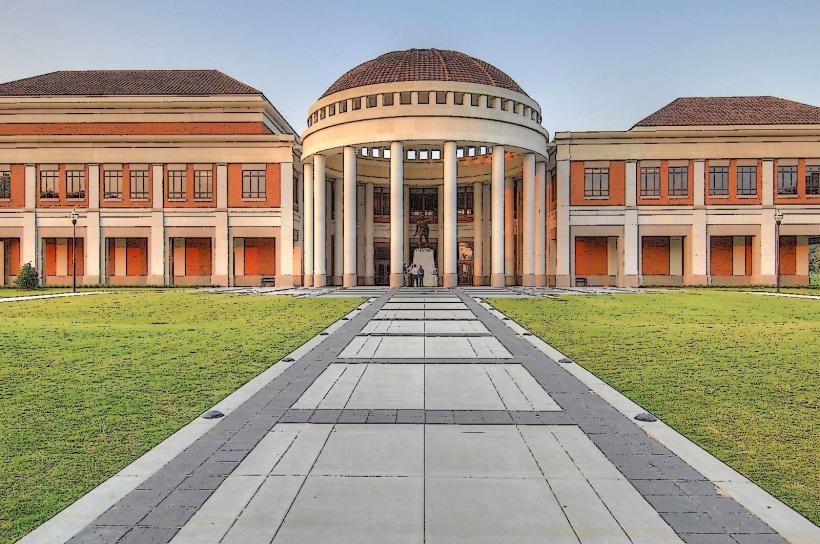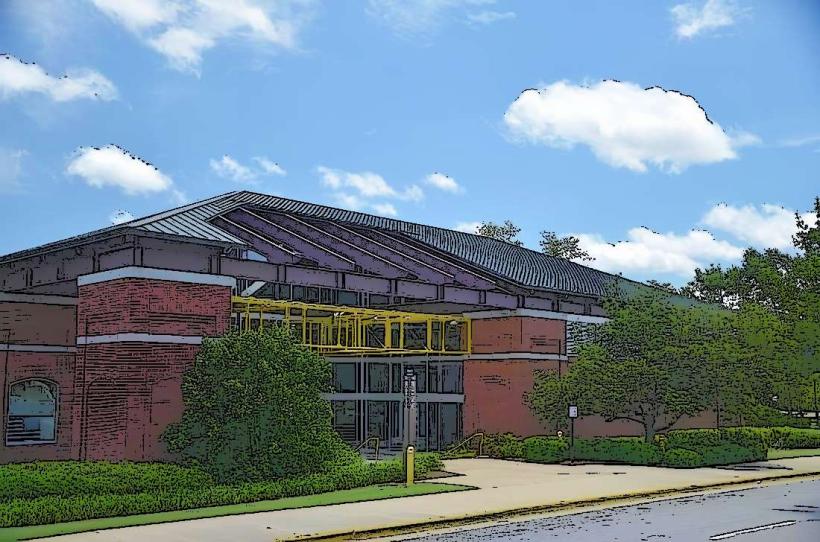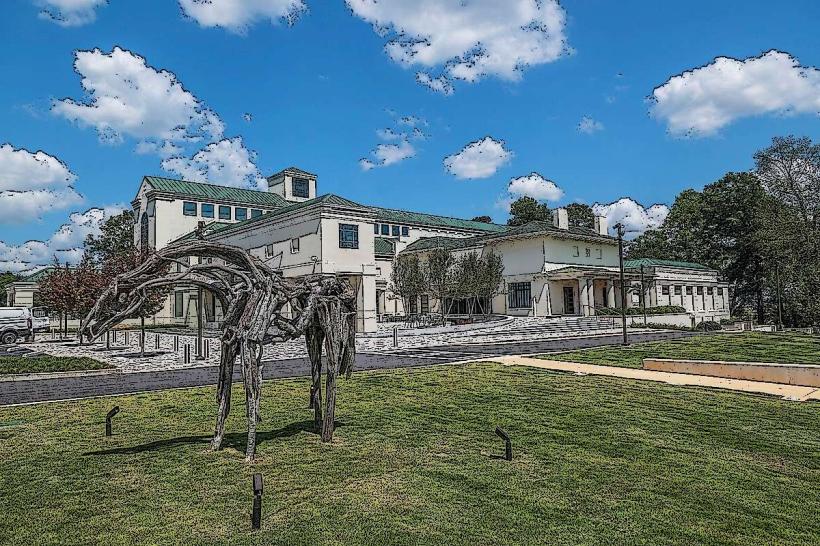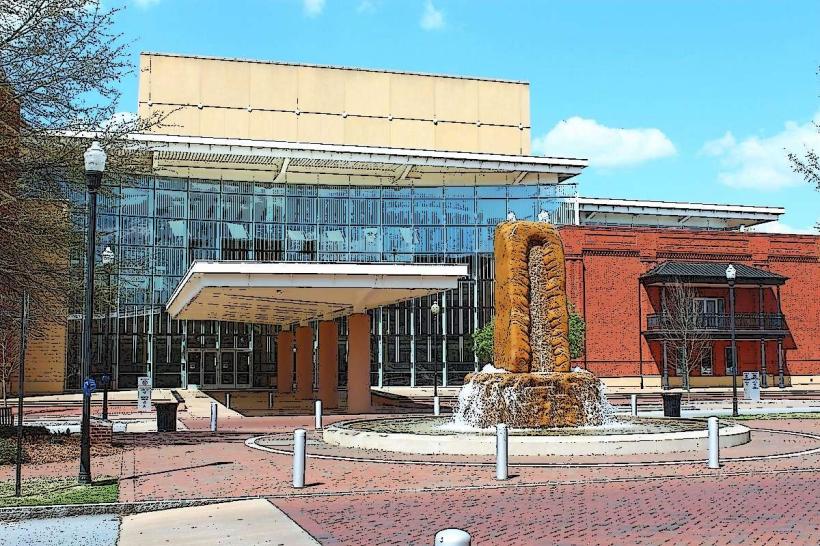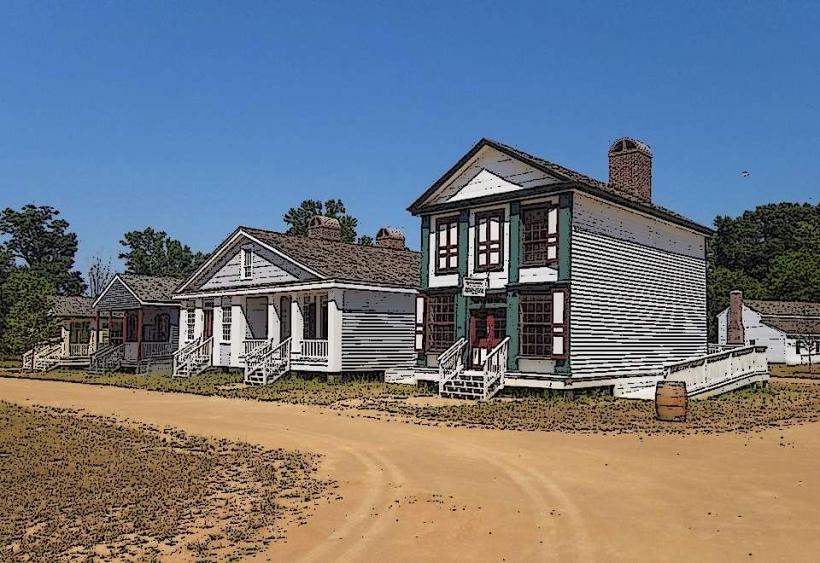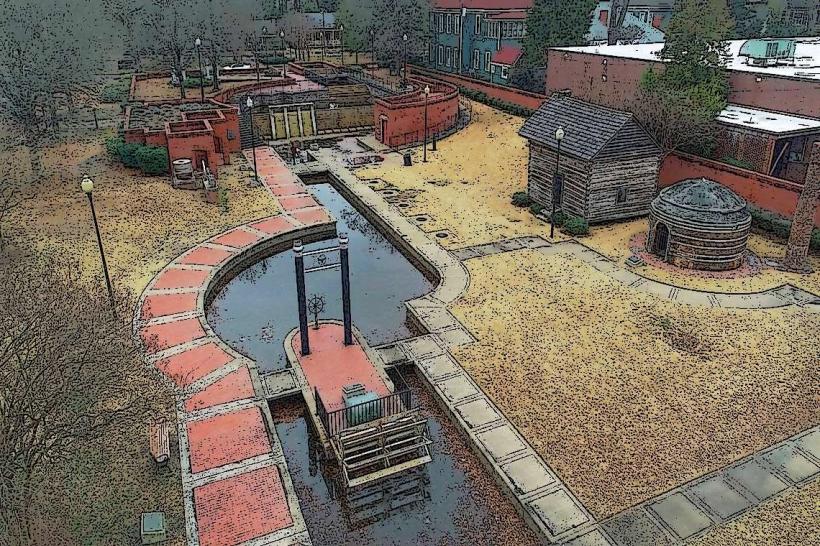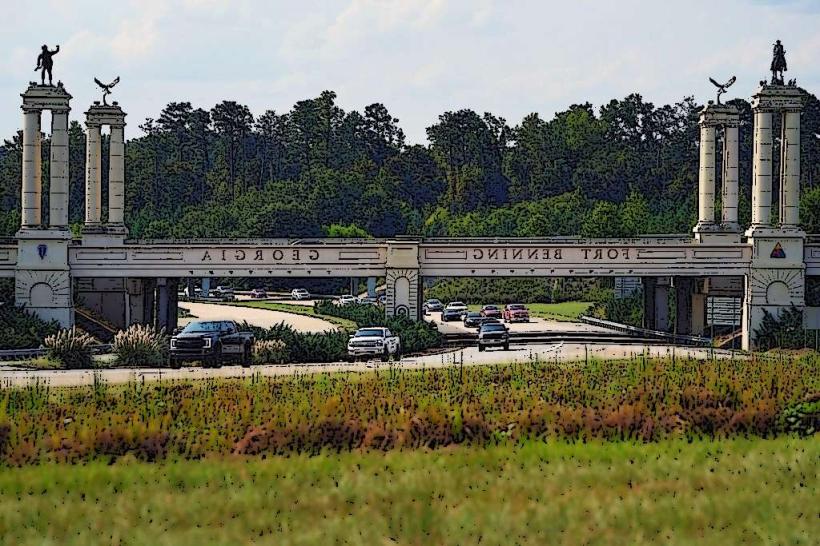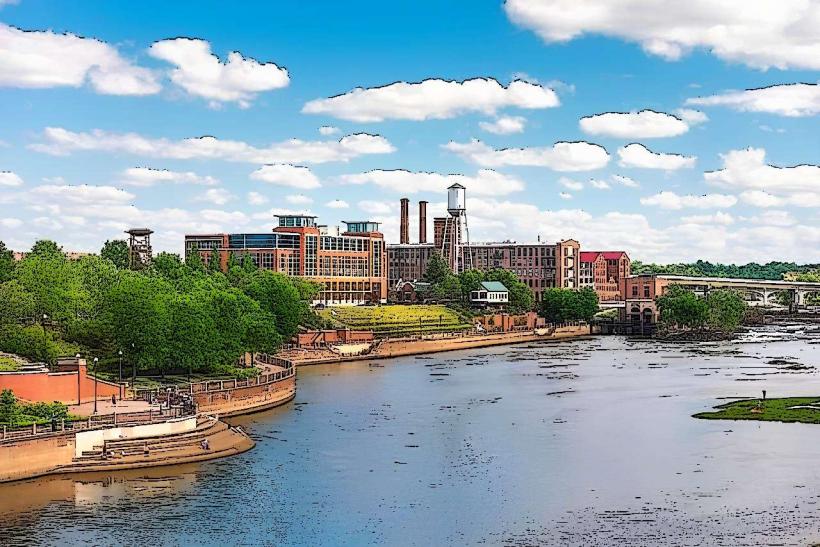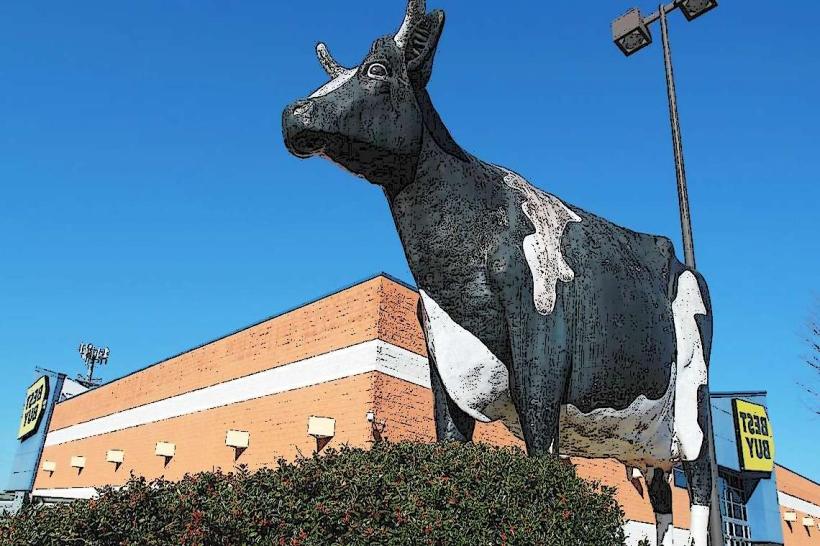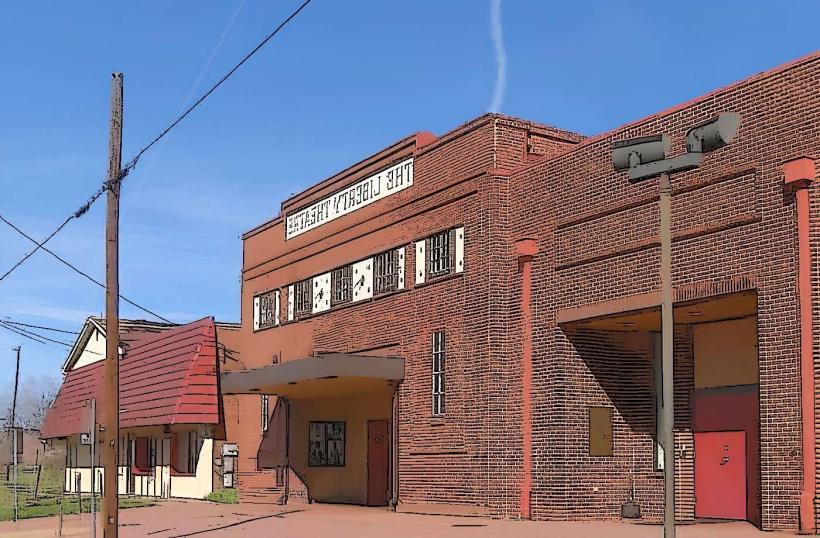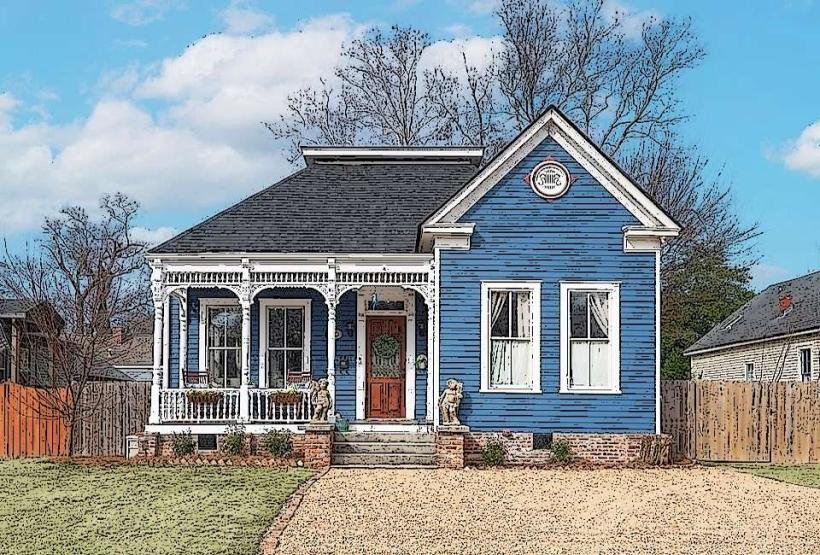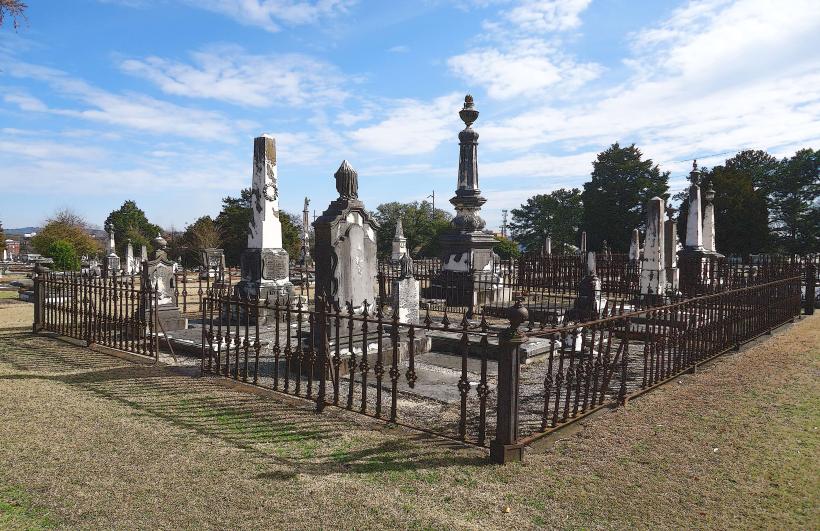Information
Landmark: Springer Opera HouseCity: Columbus City
Country: USA Georgia
Continent: North America
Springer Opera House, Columbus City, USA Georgia, North America
The Springer Opera House is a historic theater located in Columbus, Georgia, USA.
It is a significant cultural venue in the southeastern United States.
Visual Characteristics
The Springer Opera House is a three-story brick building constructed in the Italianate architectural style. Its facade features decorative cornices, arched windows, and a prominent clock tower. The exterior brickwork is a deep red, with contrasting white trim around the windows and doorways. The main entrance is accessed via a set of stone steps.
Location & Access Logistics
The Springer Opera House is situated at 103 4th Street, Columbus, Georgia, 31901. It is located in the downtown area, approximately 1 mile (1.6 km) from the Chattahoochee River. On-street parking is available on surrounding streets, with several paid parking garages within a 0.25-mile (0.4 km) radius. Public transport options include the Columbus Consolidated Government Transit System (CCGTS) bus lines that service the downtown area; Route 4 stops within 0.1 miles (0.16 km) of the venue.
Historical & Ecological Origin
The Springer Opera House was constructed in 1871, designed by architect George H. Johnson. It was originally built as a venue for theatrical performances and public gatherings. The building has undergone several renovations throughout its history, most notably in the early 20th century and again in the late 1990s.
Key Highlights & Activities
Attend live theatrical performances, including plays, musicals, and concerts. Participate in backstage tours to learn about the theater's history and architecture. View current exhibitions in the lobby art gallery. Check the venue's schedule for special events and visiting productions.
Infrastructure & Amenities
Restrooms are available within the building. Limited seating areas provide shade in the lobby. Cell phone signal (4G/5G) is generally available within the venue. Food and beverage vendors are typically present during scheduled performances, and numerous restaurants are located within walking distance in the downtown area.
Best Time to Visit
The best time to visit for optimal lighting for photography of the exterior is during the late afternoon. The performance season typically runs from September through May, offering a wide range of shows. For historical tours, check the schedule as they are offered on specific days and times.
Facts & Legends
A local legend suggests that the ghost of a former stagehand named "Silas" occasionally makes his presence known by moving props or causing lights to flicker backstage. The Springer Opera House is one of the oldest continuously operating theaters in the United States.
Nearby Landmarks
- Columbus Museum (0.3km Southwest)
- Iron Works Convention & Trade Center (0.5km West)
- National Infantry Museum and Soldier Center (4.5km Southwest)
- RiverWalk (0.8km West)
- Historic Woodruff House (0.2km Southeast)


